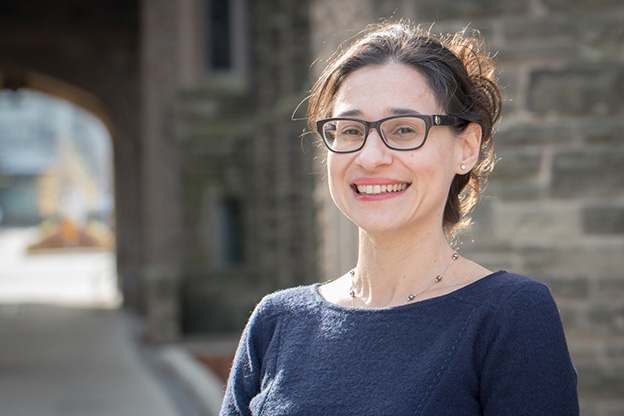Philosophy in action: New program explores ethical issues in global health innovation

What if you could eliminate one of the many species of mosquito in sub-Saharan Africa and significantly reduce the incidence of malaria, possibly saving thousands of human lives?
Sounds like a straightforward decision, doesn’t it?
Not necessarily, says Claudia Emerson, the philosopher who is leading McMaster’s new Program on Ethics and Policy for Innovation.
Her responsibility is to work out the possibilities that could flow from global health decisions, by weighing the costs and benefits on an ethical scale.
The mosquito question is just one fairly simple illustration of ethical issues in global health that arise from using new technologies and emerging science in areas such as HIV, neonatal health and maternal health.
Here’s another example, a concrete matter of life and death that an applied ethicist resolved, and it comes straight from Emerson’s own files.
In 2010, the global campaign to eliminate polio had come close to wiping out the dread disease forever, but a few stubborn pockets of the polio persisted, and “eradication fatigue” was setting in.
A bioethicist published an influential piece in The Lancet, saying that continuing the eradication campaign might be unethical since it was diverting resources from other efforts, and the most ethical thing to do might be to live with the idea of controlling polio rather than eliminating it.
Emerson published a Lancet commentary of her own, just as the World Health Organization was on the brink of deciding how to proceed. She argued that there was a greater obligation to finish the eradication, since the tools for the job were all there, and the paper became an influential part of the conversation.
Here at McMaster, Emerson leads a team that includes specialists in biomedical science, biotechnology, political science, public health and social science.
The team looks at how policies are presented, analyzing the arguments and counter-arguments behind decisions and seeing how well they are justified, through a critical ethical lens.
The PEPI team has taken up residence in the Department of Philosophy in the seventh floor of Togo Salmon Hall. As an associate professor, Emerson’s role is conduct research, supervise and teach graduate students, and work with colleagues across several disciplines.
“There’s a lot of fantastic work going on on this campus,” she says. “There’s a critical mass of people already doing excellent work in this area.”
The team, which receives funding from the Bill & Melinda Gates Foundation, works to identify and address ethical challenges, risks and policy gaps that have the potential to undermine the impact of lifesaving technologies and interventions in the field of global health and development.
“Technologies and innovations often come with ethical risks or ethical, social and cultural dimensions that we need to attend to,” Emerson says. “Failure to attend to them can derail entire programs.”
Team members do their own research in various areas of global health, such as data sharing, data governance, clinical trials, and enabling women and girls to make sure they are at the centre of development.
Operating simultaneously at the frontiers of science and ethics is complicated work. Emerson, who is returning to Hamilton after 10 years in Toronto, says she finds it stimulating and engaging.
“I like doing this because the work is exciting,” she says. “We have a front-row seat in many ways to some of the most exciting innovations on the global health and development landscape.”


